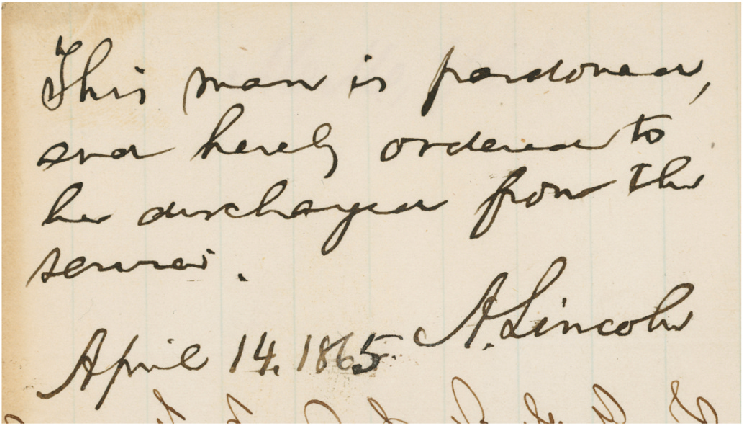We’ve been hearing a lot about pardons of the presidential sort. Both former President Biden and President Trump have used, some would say abused, their power to pardon. A couple of clarifications and then an observation:
- The pardons appear to be constitutional, Article II reading in part, “The President …shall have Power to grant Reprieves and Pardons for Offences against the United States, except in Cases of Impeachment.” For our purposes, we will use the term pardon, understanding it to mean both reprieve (think a commuted sentence) and pardon. We may not like them, but presidential pardons are not against the law. In Federalist #74, Alexander Hamilton, with Shay’s Rebellion in mind, thought a presidential power to pardon might be helpful as a strategy to insure domestic tranquility. Again, while the recent pardons seem to have done little to insure domestic tranquility, they are allowed by the Constitution.
- Just because they pass constitutional muster does not mean we have to like them. Most objective scholars and commentators agree that among the pardons issued by both recent presidents are cases of shameless partisan politics and grievous reversals of justice. If you’d like to argue whose pardons are more grievous or which pardoner is more corrupt, please go to your favorite social media site to do so.
- Presidential pardons are not unusual, even if the recent ones seem unusually unsavory. By one estimate the total number of presidential pardons granted since the Constitution was ratified may exceed 40,000. Lincoln’s pardon of Patrick Murphy pictured in the header was granted to a mentally disabled private sentenced to death for desertion. Not unsavory at all.
An Observation:
The idea of a pardon is legal and political. It is also theological. The Hebrew word סלח is used 47 times in the Old Testament and is translated “pardon” or “forgive.” It always refers to a divine act. God pardons. Isaiah the prophet understands the Lord to be a God of pardon. It is part of the nature of God to pardon:
Isaiah 55:6–9
“Seek the LORD while he may be found;
call upon him while he is near;
let the wicked forsake his way,
and the unrighteous man his thoughts;
let him return to the LORD, that he may have compassion on him,
and to our God, for he will abundantly pardon.
For my thoughts are not your thoughts,
neither are your ways my ways, declares the LORD.
For as the heavens are higher than the earth,
so are my ways higher than your ways
and my thoughts than your thoughts. (ESV)
Recipients of presidential pardons may not face jail time or may find their time in jail reduced. The pardon changes their legal status. Their unsavory nature, though perhaps changed by their experience, is not and cannot be changed by presidential decree. Young Patrick Murphy would not face a firing squad or the gallows. That was as it should be. But he was still a deserter.
The God who allows us to seek and find, who calls us to forsake our wicked ways, pardons abundantly. By his compassion we are made altogether new (2 Corinthians 5:17). Again, from Isaiah, “Though your sins are like scarlet, they shall be as white as snow.” Like the prodigal who deserted his father, we are welcomed home to warm embrace and great celebration.
Justly or unjustly, presidents issue pardons by constitutional authority. Rightly used, the power to pardon may be a strategy to insure domestic tranquility. The God whose ways are not our ways pardons abundantly even to eternal tranquility.

